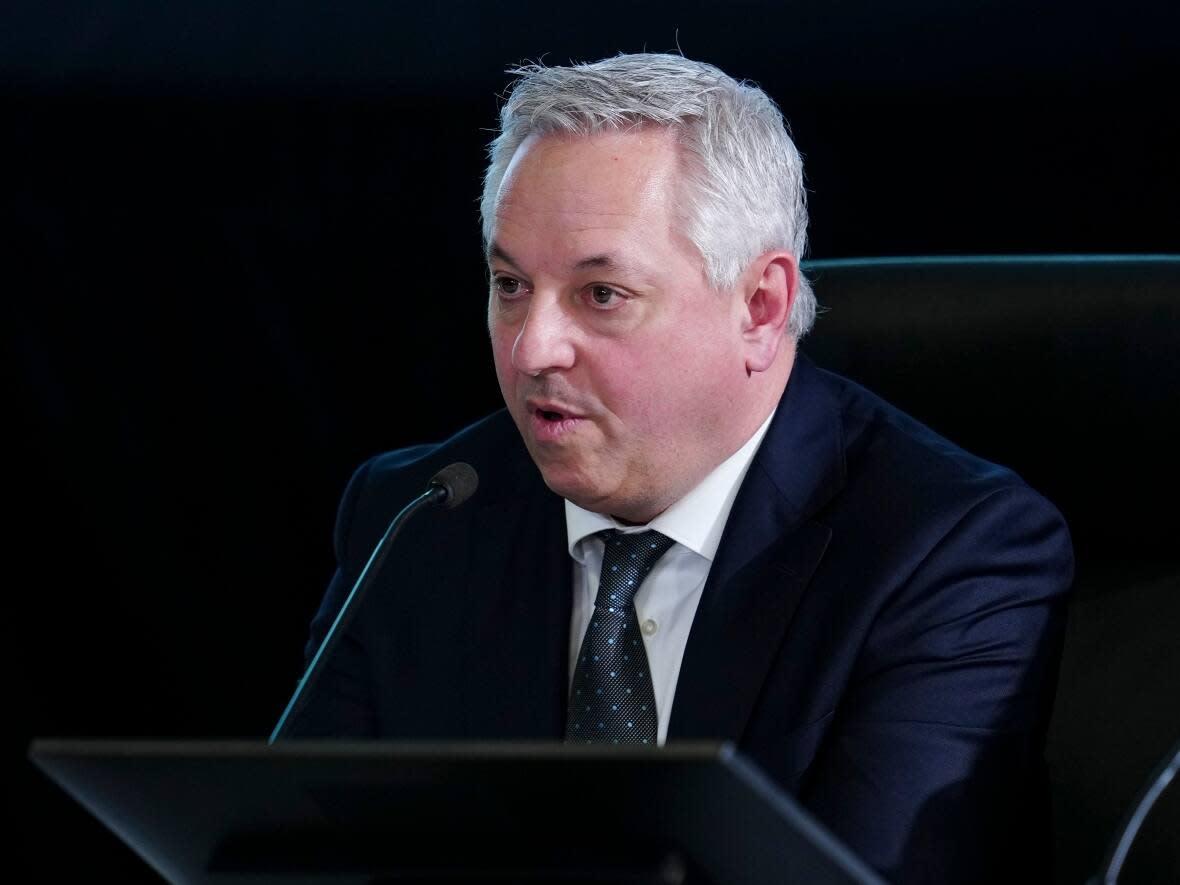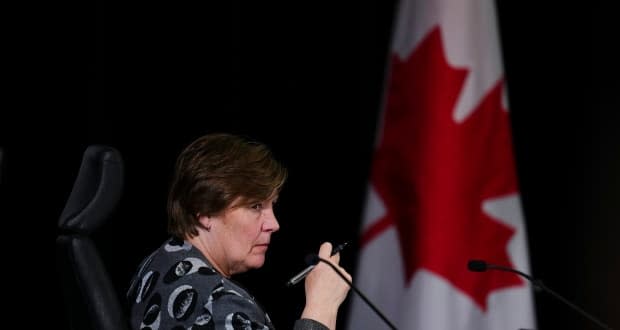CSIS chief returns to foreign interference inquiry as PM casts doubt on reliability of agency's reports

- Oops!Something went wrong.Please try again later.
The head of Canada's spy agency is appearing again before the public inquiry investigating foreign meddling in elections after multiple witnesses suggested they were not briefed by the Canadian Security Intelligence Service (CSIS) about intelligence it gathered on Chinese interference.
Questions about who knew what about foreign election interference are at the heart of the inquiry's mandate, which was triggered by claims that Prime Minister Justin Trudeau's government was aware of foreign meddling but chose not to act.
Stage one of the inquiry was supposed to wrap up on Wednesday, but CSIS director David Vigneault will be back in the hot seat Friday morning at the request of some of the participants.
His recall comes after multiple witnesses told the inquiry they were not warned by CSIS of the severity of the threat, despite documents indicating the contrary.
At the centre of the issue are warnings from CSIS in briefing notes that key witnesses say they never received.
One document that was cited multiple times at the inquiry, for example, says CSIS believes the Chinese government "clandestinely and deceptively" interfered in both the 2019 and 2021 federal elections.
That February 2023 briefing note says China's interference was "pragmatic in nature and focused primarily in supporting those viewed to be either 'pro PRC' or 'neutral' on issues of interest to the PRC government."
That document was prepared for a briefing with the Prime Minister's Office.
During his testimony before the inquiry Wednesday, Trudeau said he never saw that briefing note — echoing a claim made by his deputy chief of staff Brian Clow earlier in the week.
"Most of the information in that document was not relayed to us in that meeting," said Clow Tuesday.
The CSIS document also warns that protecting Canadian democratic institutions against foreign interference "will require a shift in the government's perspective and a willingness to take decisive action and impose consequences on perpetrators."
It says that foreign interference will persist until it "is viewed as an existential threat to Canadian democracy and governments forcefully and actively respond."
WATCH | Trudeau is asked about his level of confidence in CSIS intelligence
Vigneault is expected to field questions about whether he relayed the information on the page to the upper echelons of Trudeau's government.
The CSIS director also could be questioned on the prime minister's comments about the reliability of the service's work.
Trudeau challenged CSIS intelligence, inquiry heard
During his testimony Wednesday, Trudeau disputed information gathered by CSIS, including intelligence suggesting China may have interfered in a Liberal nomination contest.
The inquiry has seen intelligence summaries suggesting CSIS warned that international students were bused in to take part in a nomination vote in the riding of Don Valley North, were given fake documents to allow them to vote for Han Dong — who went on to win the Liberal nomination — and were told by Chinese officials that if they didn't participate, their student visas would be in jeopardy and there could be consequences for their families back in China.
Trudeau testified that he pushed back on those claims.
"My concern was more that perhaps that the service didn't understand as deeply as political actors do the prevalence of busing of different community groups in nomination campaigns," he testified.
Trudeau and other ministers also said they didn't feel CSIS's intelligence was substantiated by evidence.
"I didn't feel there was sufficient or sufficiently credible information that would justify this very significant step as to remove a candidate," Trudeau said.
During a media availability Thursday, Trudeau was asked by a reporter whether Canadians should trust CSIS, given his testimony.

The prime minister said he respects the Canadians who work in national security.
"But no government, no leader, should simply be a passive receiver of information and intelligence," he said.
"We have a role to play in asking questions, on thinking critically ... encouraging further work on questioning sources and pulling out contradictions. That actually is part and parcel of the work that we all need to do to make sure that everything is done to keep Canadians safe."
Watchdogs' findings coming
This will be Vigneault's third public appearance before the inquiry. He testified last week with other security officials and addressed the commission back in January as it first began to consider how to hold a public inquiry dealing with classified information.
After Vigneault's testimony, Commissioner Marie-Josée Hogue and her team will start work on their interim report, which is due May 3.
That report will not be the only take on the credibility of media leaks about foreign election interference and the government's response to those reports.
Canada's two national security watchdog bodies — the National Security and Intelligence Committee of Parliamentarians (NSICOP) and the National Security and Intelligence Review Agency (NSIRA) — have finished their investigations into the same issues and have handed in their reports to Trudeau.
Redacted versions of their findings eventually will be made public.

